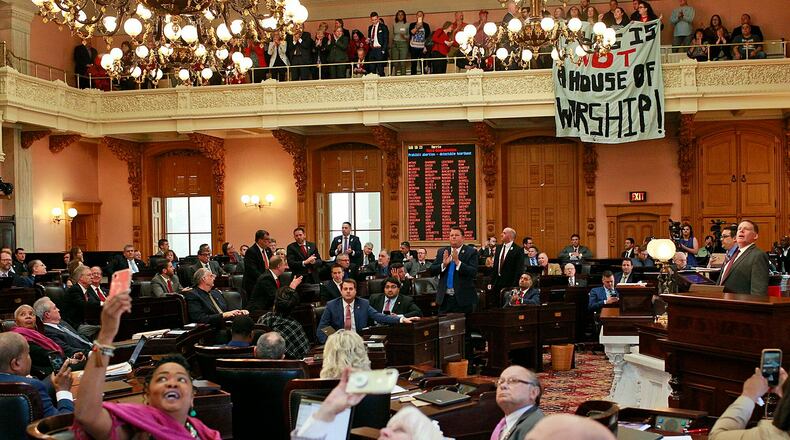“This cause originated in this court on the filing of a complaint for a writ of mandamus,” it says. “Upon consideration of relators’ motion for an emergency stay, it ordered by the court that the motion is denied.”
The American Civil Liberties Union, the ACLU of Ohio and Planned Parenthood Federation of America filed suit Wednesday in the Ohio Supreme Court on behalf of Ohio’s six abortion clinics and one doctor, seeking an injunction to again block implementation of Senate Bill 23, which outlaws abortion once a fetal heartbeat is detectable. Those clinics include the Women’s Med Center of Dayton and the Planned Parenthood Southwest Ohio clinic in Cincinnati; the doctor is Sharon Liner, medical director for the Cincinnati clinic.
Senate Bill 23 became law in 2019 but swiftly blocked by a federal judge. That injunction, however, was lifted June 24 after the U.S. Supreme Court overturned Roe v. Wade.
Also on Wednesday the Ohio Supreme Court ordered named defendants in the Ohio case – Yost, state health officials and prosecutors in counties that are home to abortion clinics – to file responses to the suit no later than noon Thursday.
Yost filed a response opposing the stay. Two of the affected county prosecutors, Cuyahoga County Prosecutor Michael O’Malley and Franklin County Prosecutor Gary Tyack, said in their filings they did not oppose granting a stay on SB 23.
About the Author

